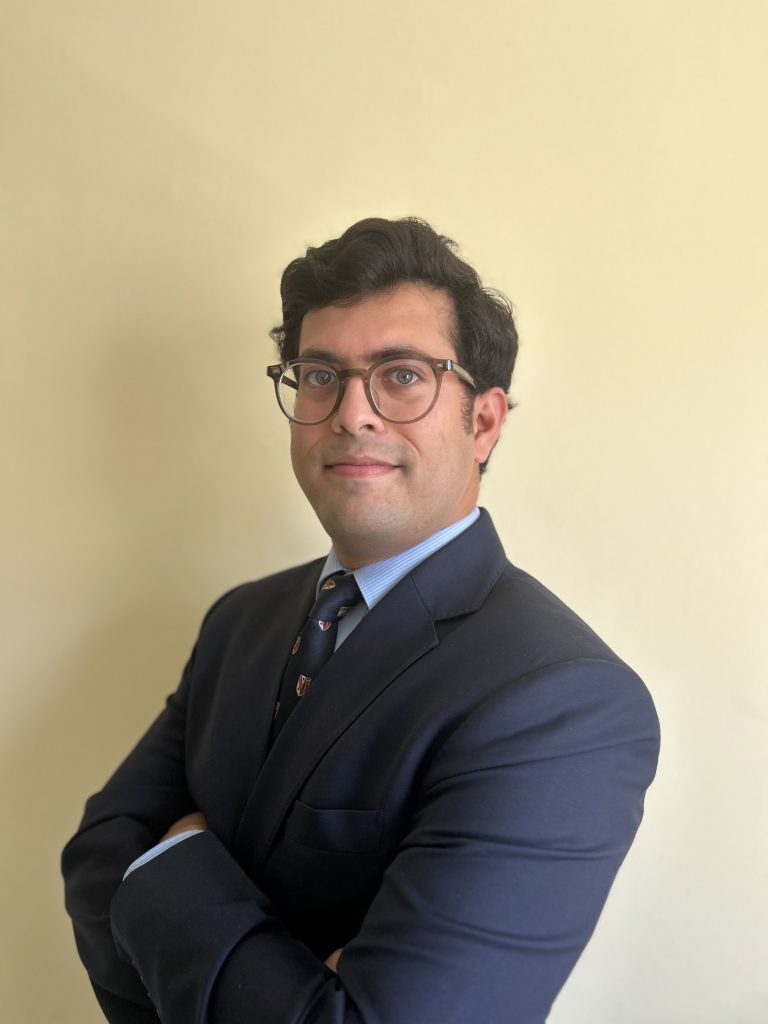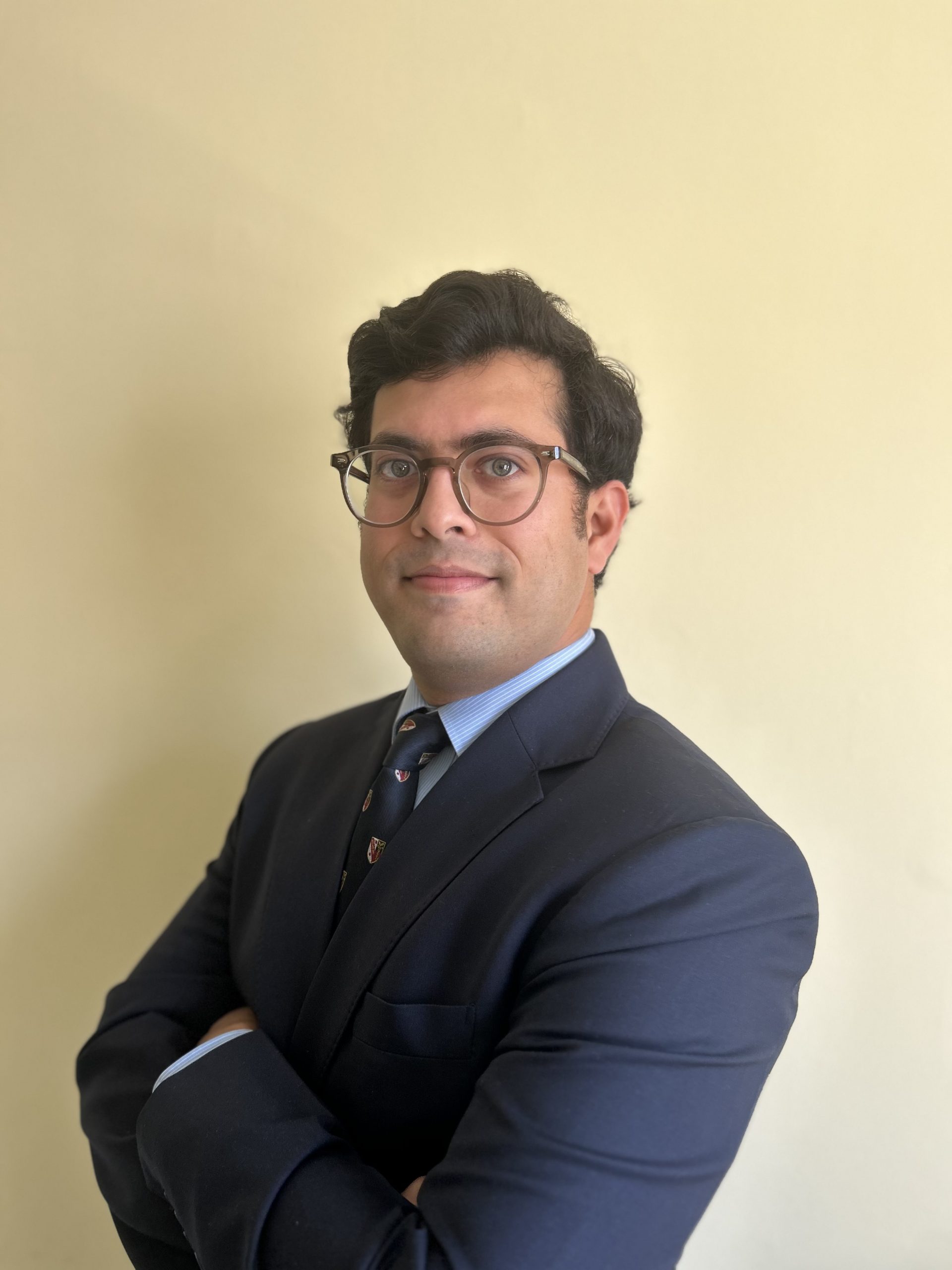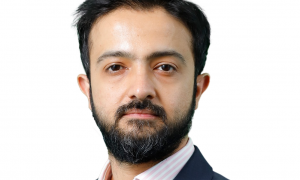This Interview has been published by Pragya Chandni and and The SuperLawyer Team

Can you share with our listeners the journey that led you to pursue a career in law, especially considering your impressive academic achievements at Amity Law School?
The journey that led me to law began in 11th standard when I chose Science with Computers only to realize that I have an interest in neither. Like many others, I was merely following the herd. Fortunately, my computer science teacher at Modern School sat me down and encouraged me to start law school training while pursuing science at school. The days I spent in law school training were most interesting and made me realize that I may have a genuine liking for legal subjects and reasoning. By the end of my final year at school, my entire section and my teachers knew that I was a science student preparing to become a lawyer.
I joined Amity Law School, Delhi (IP University) which at that time was in the top 10 law schools in India. I would prepare for my classes, ask way too many questions (sometimes even got punished for it), and worked hard for my exams. I would take time out to represent the law school in a few national and international moots and MUNs every year. After the first semester, I had topped the University, which was extremely encouraging and subsequently I received the Raja Rai Best Student of the Year award for all 5 years at law school. It was the first time I understood the meaning of the word aptitude. I was excited to move forward on this path.
How did your experience as a Law Clerk to Hon’ble Mr. Justice Sanjay Kishan Kaul and as an intern with HMJ (retired) S Muralidhar shape your perspective on the legal profession?
Working as an intern with Justice Muralidhar and as a clerk with Justice Sanjay Kishan Kaul allowed me to gain insight into the life and cycle of arbitration cases at the Delhi High Court. While Justice Muralidhar handled the original side arbitration cases amongst others, Justice Kaul was handling the arbitration appeals. I had a front row seat in the Delhi High Court that enabled me to witness some of the best orators/Senior Advocates presenting their cases before some of the brightest legal minds.
In my internship with HMJ Muralidhar, I was responsible for preparing a Compilation of summaries of judgments delivered by the Hon’ble Delhi High Court in that calendar year that contributed to the development of law. This proved to be an excellent exercise for a newly graduated law student as it provided me with further training in reading lengthy judgments in a short period of time and extracting its essence in a few short paragraphs. This, I believe, is a skill to be honed in every lawyer.
As a clerk to Justice Sanjay Kishan Kaul, my roster of responsibilities was a bit wider as I was responsible for checking the daily orders, sat in Court to hear arguments while noting important cases quoted, conducted extensive legal research in order to assist the Judge in dictating judgments and prepared the odd speech to be delivered by the Judge.
My experience at the Delhi High Court, working with two brilliant Judges allowed me to carefully observe court craft and court etiquette. It gave me a unique opportunity to understand the considerations that weigh with judges while deciding cases and also allowed me to stay updated with the latest caselaw on various legal issues, as they would be regularly quoted in the Court. It was helpful to maintain a diary of daily case proceedings and important notes during the course of my clerkship.
Your Master’s in Law at the University of Cambridge focused on International Law & EU Competition Law. How did this international exposure contribute to your understanding of the legal landscape?
To be a Masters student at one of the oldest most prestigious Universities in the world – (with arguably the most beautiful campus) – was a matter of great privilege as well as pride for me. It has contributed significantly to my growth, not just as a professional but also as a person. I was fortunate to be in a multicultural environment and to be taught by highly respected professors such as (late) Prof. James Crawford whose small groups sessions at the Lauterpacht Centre for International Law would be riveting to say the least.
It was a remarkable opportunity to understand the various facets of EU Competition law from experts such as William Allen, a former competition law partner at Linklaters, which I have consistently relied on in competition law cases in India. The masters not only contributed to my understanding of the legal landscape, but it broadened my horizons allowing me to be more confident and self-assured as a litigator in India.
At Cambridge, I was elected as the Student Council Representative at Darwin College which enabled me to voice the concerns of the students at Darwin and stand up for issues that mattered. After coming back from Cambridge, I have also been closely associated with the Oxford and Cambridge Society of India (having been elected on three successive Committees) organizing academic, social, cultural and sporting activities with Oxbridge alumni in Delhi.
How do you stay updated on the latest legal developments, especially in the dynamic field of competition law?
In order to stay updated with legal developments in competition law, I read some important competition law journals (Indian and foreign) as well as judgments from India, EU and US. I spent 2 months in Brussels in 2023 attending multiple conferences pertaining to the developments in EU competition law and competition law globally.
You transitioned from working in the Chambers of Aditya Narain to establishing your independent practice. What were the pivotal moments that led to this decision, and how has the experience been for you?
After completing my masters, I worked with Mr. Aditya Narain, Advocate (as he had a very strong background in antitrust) for 5 years and I was primarily involved in cases pertaining to competition law and consumer disputes. In fact, during the very first week back in India, I was assigned the Ericsson vs Intex/Micromax (Standard Essential Patents) case where Mr. Narain was appointed the Amicus Curiea by the Hon’ble Delhi High Court. It was the first case of such a nature dealing with the conflict between competition law and IP law.
Thereafter, I sat for the AOR exam in 2019, as I had always aspired to practice at the Supreme Court of India, even as a young law student. Once I cleared the prestigious AOR exam, I started my journey as an independent counsel and an Advocate on Record. To be an Advocate on Record, in my honest opinion, is one of the most fulfilling experiences for a lawyer as it presents you with opportunities to develop and present high stakes cases in the highest Court, pertaining to all subjects whether civil, criminal, constitutional etc. Often, the AOR dons different hats i.e. of a lawyer, clerk, typist, translator and that can be a bit exhausting. I have been fortunate to have been involved in some extremely interesting cases before the Supreme Court that have contributed to the development of law. This was always my dream.
Your current practice involves handling a variety of cases, including competition law, consumer disputes, constitutional law, insolvency & bankruptcy, and more. How do you manage to navigate such diverse legal areas effectively?
As an Advocate on Record practicing before the Supreme Court of India, one has to be open to learning diverse and complex laws in a limited amount of time. Not just learn, but with the right doses of legal research, one has to often master those laws in order to argue the case at the highest Court or even brief Senior Advocates on the matter. One needs to retain a sense of being a generalist. But as a law graduate, there cannot be a better avenue to learn and practice across such a diverse variety of legal subjects.
With the aid of some brilliant and hard-working colleagues, support from mentors as well as effective time management skills, it is possible to practice across such a wide array of legal subjects. It would be apposite to mention that with the evolution of technology and e-filing software’s/virtual courts, it has become much more convenient to practice as a litigator.
You recently represented a leading tire company in a significant challenge to a Competition Commission of India decision, resulting in one of the largest fines imposed by CCI. Can you share the key challenges you faced and lessons learned from this case?
It is indeed an honour to be a part of the tyre cartel case as I have had the opportunity to brief the brightest most well respected seniors such as Mr. Fali S Nariman and Mr. G Masilamani in the matter and work alongside some of the best competition law firms in the country. The matter is pending before the Supreme Court and therefore I would not be able to comment in detail about the case. However, I can say that the Competition Commission of India is one of India’s most robust and active regulators responsible for maintaining fairness in both the retail and online marketplace in India regulating matters pertaining to abuse of dominance and anti-competitive agreements. It is equipped with an investigative arm i.e. the Director General’s office that comprehensively and meticulously investigates matters pertaining to abuse of dominance and anticompetitive agreements.
In the tyre cartel case, unfortunately, the investigation report of the DG found evidence of existence of a cartel and the CCI passed a penalty order of around Rs. 1788 Crores against 5 tyre companies in the market for Truck and Bus bias tyres. This was one of the largest fines imposed by the CCI. The biggest challenge was to impress upon the Hon’ble National Company Law Appellate Tribunal, that this is one case where the DG and the CCI, both, have made some serious errors in calculating and comparing prices. Ordinarily, the decision of an expert body such as CCI is hard to challenge before the NCLAT, and even harder to have annulled by the Appellate Tribunal. However, in the tyre matters, we were above to demonstrate that the case set up by the DG and accepted by the CCI of price parallelism and cartel was ill-founded and factually incorrect. The DG and CCI had overlooked certain crucial details and numbers and those errors clearly demonstrated that no price parallelism existed and therefore no cartel existed in the market. It was one of the rare cases when the CCI admitted to making those errors (which seldom happens, as regulatory bodies such as the CCI are meticulous and comprehensive in their investigations). However, the NCLAT, while setting aside the CCI penalty decision, remanded the case back to the CCI for deciding the matter afresh in light of the errors made in the CCI decision. In my view, the NCLAT may have considered finally disposing of the matter instead of remanding it and therefore we have filed a limited challenge to the remand of the matter back to CCI. The CCI, of course, has challenged the entire decision of the NCLAT and both cross appeals are pending before the Hon’ble Supreme Court.
To sum up, the biggest challenge we faced in the matter was to show that the decision of the CCI was contrary to the facts as well as the settled law. We had briefed two of the leading seniors to argue on our behalf i.e. Mr. Mukul Roahatgi and Mr. Krishnan Venugopal who successfully represented our case before the NCLAT. What I learnt in the process was that in order to challenge any decision of any expert regulatory body, one must have tremendous research and preparation skills. The briefing for both the Senior Advocates was rather different and our team had to be attuned to their queries and styles prior to the briefing.
Having worked with notable judges, senior advocates, and in various legal capacities, how has mentorship played a role in shaping your career, and what advice would you give to aspiring lawyers on finding the right mentors?
Mentorship is a vital aspect of our profession, especially in litigation. I have had the good fortune of working with some of the best legal minds in the country, and I have most certainly learnt something from each one of them. There have been lessons on patience, legal ethics, hard work, humility, legal research, oration etc which have helped shape me, not just as an Advocate but also as a person.
I draw inspiration from Mr. Fali S Nariman, Sr. Adv (as do most lawyers) who I have had the opportunity to brief multiple times. Briefing Mr Nariman, as many would know, is never about fancy conference rooms and coffee machines. It is about hard facts, in-depth research into the law, reading your brief, re-reading your brief, re-re-reading your brief and culling out the crux of it. Until, every word of every sentence of every paragraph is not crystal clear, no pleading or note ought to be presented to the Court in his name. A clarity of thought, I learnt, is a crucial aspect for a lawyer, as only then can the pleading reflect such a clear thought and move a Judge to rule in one’s favour.
I learnt another very valuable lesson while briefing Mr. Nariman, something that he also writes in his book. It is that we must take the time out to think about our cases. What that means is that our level of commitment and passion should be such that whenever we have any spare time, we must think about our cases, discuss with colleagues and try and figure out whether there was a better way to present it or even develop it, whether there was an argument that we missed or an argument we took that may not work, how to respond to an argument the other side may make etc. This self-analysis forms the foundation of growth in the profession, in my view.
If an aspiring lawyer gets the luxury to choose a mentor, he/she should choose one who not merely knows the law well, but also encourages junior lawyers, gives them opportunities to argue and research, who is transparent and ethical in his/her conduct, discusses cases with his/her juniors, shares anecdotes and occasionally gives notes on how to improve.
For those who do not get the luxury of choice, just begin! Take any opportunity and start working. Regardless of how your mentor or senior is, there will be a lot to learn provided you are receptive, observant and inquisitive. Learn what you can and move on.
Considering your achievements and diverse experiences, what advice would you like to offer to fresh law graduates who are embarking on their legal careers today?
I remember briefing an extremely well respected Senior Advocate in Chennai High Court in a cartel case and I was convinced that a particular argument ought to be made by him. The Senior sensed my conviction and excitement but felt that the argument could be detrimental to our case. Only, I failed to understand his point and kept arguing to the contrary.
Young lawyers are often full of energy and confidence, ready to fight the fights and in that endeavor often become less receptive and flexible to other (often opposing) arguments. Sometimes we don’t know when to stop. Being too rigid may have some adverse effects in a Court of law, especially when a Judge strongly disagrees with your viewpoint. It is then that you must acknowledge the opposing argument and redirect yourself in order to meet that argument. Such versatility to maneuver ensures longevity as an orator and a litigator.
I would also add that in order to be a successful lawyer, one must read the latest judgments, and foreign Court decisions in an attempt to stay abreast. Maintaining a diary of relevant cases is something I have learnt from my seniors and it has saved me on a number of occasions. We must be polite and assertive in Court and never go to Court without reading the brief, even if it is to take a postponement on behalf of another lawyer because if experience has taught me that, on the day that you don’t prepare and go to Court, it is exactly on that day that the Judge will want to hear you argue. Last but not least, one of the most relevant pieces of advice I learnt from seniors and mentors, was not to lose hope in this profession, especially litigation. Litigation will test you, there will be days when you learn nothing (and more days when you will earn nothing) but the litigator must remain passionate, inquisitive and steadfast in his/her pursuit. ‘Just keep swimming’
Get in touch with Arnav Narain-
























